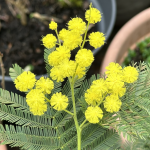On connectedness
Good morning! I hope this post finds you well. In this post I am writing about women’s rights and my personal commitments towards gender equality. I catch up with March in Nature and offer two visual reflections for your digital wellbeing.
I am here to wish those of you who identify as women a very Happy International Women’s Day, weekend, week, month and year. I sense movement in how this day is celebrated in my closest networks. On the one hand, I notice a lot of attention being placed on including men and people of all genders to ensure that the world doesn’t feel ever so binary. And, I would think, also to counter-act the narrative of “women threatening the traditional expression of masculinity” spread by some pretty vocal and impactful patriarchal voices (I won’t name them here; there is no need to amplify them even more). On the other hand, I see wonderful male advocates of gender equality embracing the need to use this time of the year to step back and allow space for other genders to shine. I personally really connect with the idea of stepping out of the central spot and making space for others to join and take the lead. Maybe it’s an age thing, although I have absolutely no problem with taking up space, leading, and inspiring if needed, and I hope to continue doing it. But as I get older, I do realise that I am a White, able-bodied, well-educated woman. So, I also have a responsibility towards my Sisters performing (or not having a choice but to perform) other identities.
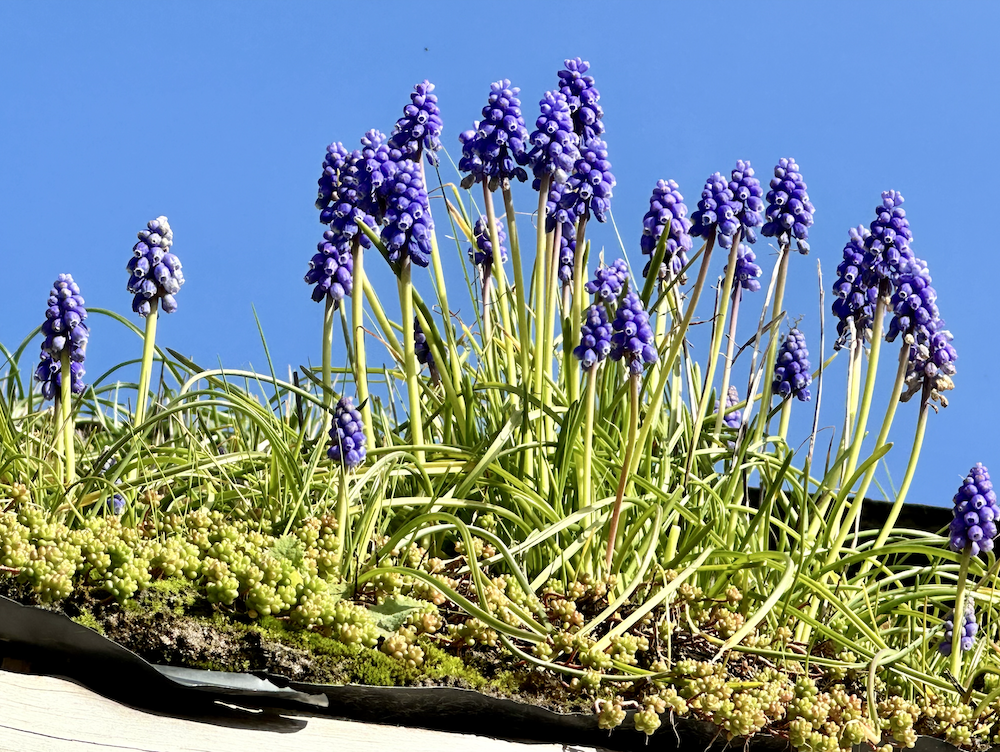
Here is what I do and what my commitments are (language is tricky; “commitment” feels like a buzzword these days, but I take this seriously):
(1) I fight for and provide safer and more just spaces for ALL women who walk the path in spaces I already occupy.
I acknowledge that the notion of “safe space” is also an aspect of White privilege, but I am aware that I mainly speak to White people here, hence the use of the term. What I am saying here is that I am regularly monitoring my usual spaces and communities for any form of power misuse towards women – especially trans women, (visibly and invisibly) disabled women and women from minoritised communities. I carefully call out micro-aggressions and injustices – when safe for them and me, which – if you think about my identities – is actually more often than we tend to realise.
(2) I work harder on my own internalised patriarchy.
This one is so hard! I was socialised with men in my early childhood, even though I had mixed (very binary) gender friendship groups. I was a classic tomboy. I was raised by an absent mother and two strong, kind, loving men (father and older brother), so I have absolutely no problem taking the central space in a new room, feeling deserving of attention and expecting not only equal rights but full support for my causes. Now, the problem with this upbringing is that I am not always aware of the patriarchal behaviours I myself may be perpetrating. I may dismiss the Sisterhood around me. I may push through things instead of going softly. I may think in lines, not circles and ripples. It is rigidness in patriarchal systems, one that feels ever so enticing and comfortable, and so when I am busy, tired, and overwhelmed with too many life opportunities, I get lost in my patriarchal autopilot. So slowly, steadily and with the support of intentionally recruited helpers, I am learning to keep my autopilot in check. Sometimes, it is just as easy as doing the opposite of what my gut feeling (aka autopilot) suggests and realising the softness, wisdom and care discovered on the other side of my reactions. I generally refuse to self-depreciate (I still fall for it!), and I avoid putting other women down. In fact, I do my best to lift them up – we all need this.
(3) Connect with and celebrate my feminity and Sisterhood
I spend a lot of time advocating for the aspects of myself that are traditionally connected with masculinity. When I am told (and I am told this a lot) that I am too determined, ambitious, vocal and independent, I hold that as my well-deserved qualities. I know women get judged for being “too loud, too ambitious and too driven”, but I am not letting this get to me. It is hard enough that we do not have as many choices as men in the first place and have to manage so much more (purposefully designed to keep us busy, distracted and exhausted). Even when life feels like a battle, I continue dreaming big. Sometimes, in those harder moments, I feel that dreaming when life backpack is too heavy is exactly the definition of “radical thinking”. But all this work, one we have no choice but to do, also means that there is hardly any time and energy left to rest, go softly, celebrate, connect with other women and reconnect with me. And so, like any other important “business”, I put those times in my calendar: coffee time with Sisters, self-care time in the allotment, wellbeing and nurturing time, family time – all of it. It still gets busy and sometimes harder to access, but everything good starts with the intentions. Actions follow from there. I am so glad to feel this approach is working. I have always benefitted from friendships with people of all genders and women, so if I fail, I know I can lean more into Sisterhood.
(4) I remember the basics – support women, pay women, advocate for women.
I run a business with equal pay – as a leader, I get paid the same hourly fee as every single staff member. We already know from successful business trials that this approach increases productivity by up to 30% – and that is just work results, not to mention people’s wellbeing and the quality of our relationships. I offer a lot of discounted and free support to women in need. I consider women’s rights in my work and in private investments of time, money and impact. I work with men, especially offering counselling, to stop the cycle of abuse and to help them bridge the gender gap. there is a lot of work to do, and none of it is strictly linked just to gender, so in my liberation psychology approach, I do pay attention to minoritised and othered groups: every year, I dedicate a small chunk of my working time to those groups and support them for free. Also, let’s face it: it feels good to be able to do that and to build a business strategy which allows enough freedom to be in that place, too. And so everyone wins.
(5) I disengage from people and spaces who actively disrespect and harm women
We are all on a journey, and when building relationships, we all impact each other. This is why I pay special attention to environments and people who reinforce, perpetrate and advocate for ideas, behaviours and systems harming women. I disengage from them. I avoid them. I build pretty strong boundaries if I have to be present in those spaces and fiercely guard myself and others. Harm starts small, grows fast and causes actual harm. Mostly, the harm comes in small, ordinary pockets of “how things are done anyway”.
In business and other industries, women leaders are ignored, corrected, and silenced daily. Watching prominent, respected male voices bracket every single powerful woman at public events is a norm, clearly convinced that they are doing them a favour somehow. Even I find myself thinking: “Well, nothing new here”. So I walk away.
In research and education, women are exploited for their ability to multitask and get stuff done, but conveniently misquoted or not mentioned in results at all. Just look at the history of your industry and notice how many women you can name and honour for their contribution to where you are today. If I think about psychology, I always wonder how come I had to be over 40 years old to learn the actual name of Brauer’s and Freud’s famous client, Anna O.? Or why is it that even if industry articles do mention she was called Bertha Pappenheim, her own incredible activist work to support marginalised women is absolutely unknown to most of us (here is her book on the topic, by the way)? So, I unfollow patriarchal sources online and leave traditional educational institutions if I can.
Women are exploited starting from the minute they wake up in their own homes – the amount of men who boast about women’s rights but… do not cook, clean their own homes, and share parenting is absolutely infuriating and surreal. I love how they pictured in the biographic movie about Margaret Thatcher, who was feared by the very men who ate in her kitchen. Honestly, I don’t even ask the men I work with, “So before we collaborate, tell me: who runs your household?” Do you? But I do disengage from men, women and people of all genders who speak about this distribution of tasks as if it were normal. I walk away. I do not laugh at the jokes. I remain silent and still. I do not consent to this. (Needless to say, I live in a home with an equal distribution of roles, and it is always a journey, but it is one we all need to take.)
In my jobs, International Women’s Day is a huge event, so I also take it as an opportunity to reflect. In 2025, I sense an open, beautifully articulated anger in women leaders and wonderful, soft care and holding in the male voices I respect. I see the LGBTQIA+ community mentioned and included in those conversations. I see all forms of discrimination and harm remembered, and the work for women centred around those topics. This makes me hopeful that if we all do a little bit, our bit, the reality for our children will be easier and healthier.
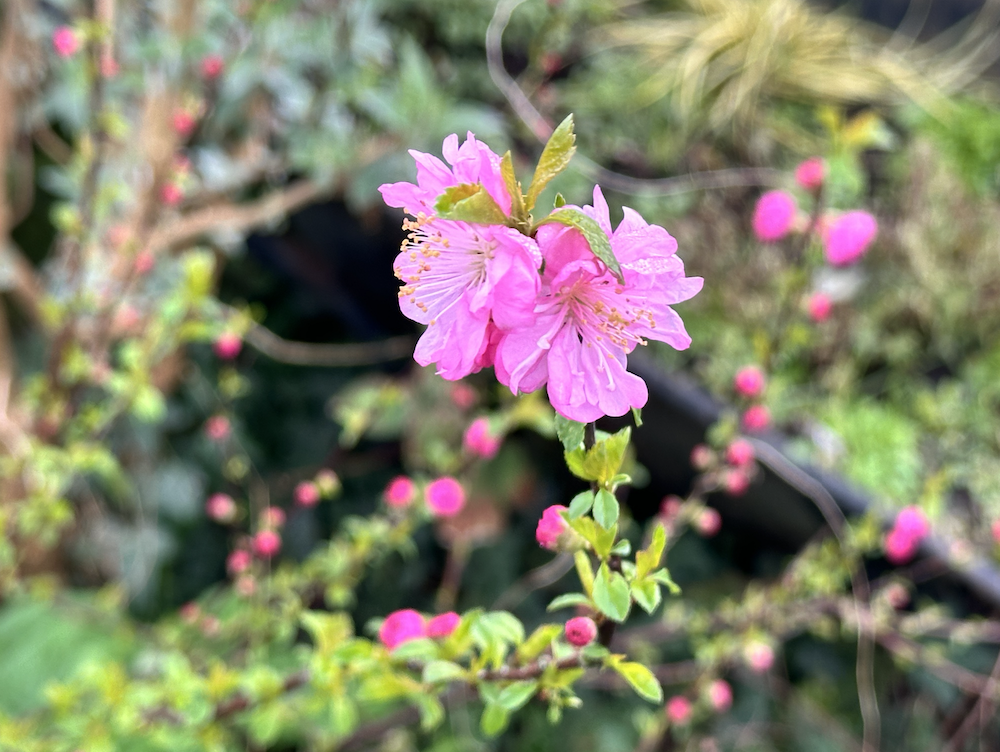
I find rest and hope in the garden and in the allotment as well. March is THE month for gardeners. Everything is about to burst into fresh green growth, and towards the end of this month, we can start growing new vegetables. In fact, maybe even this weekend, I will be attempting to start our first beetroot patches and plant potatoes soon, too. Spring flowers are out, carefully but confidently feeding the bumblebees. I saw a bee, too, and an incredible amount of frog spawn in the Grow Wilder ponds.
Our park daffodils are out and bluebell leaves are all out. I really want to go to the local nature reserve to spot wild garlic leaves. I see our veg supplier, the amazing Riverford, already has it in stock. I haven’t seen woodpeckers yet (they are mating in March and marking their territory – I just read as the only bird in the UK that is using a tree surface to make loud sounds), but our garden, allotment and Grow Wilder truly feel like bird highways at the moment. I made a friend with a small robin bird that likes to listen to me and twist its head sideways – I think it’s a 2024 baby, and it fills me with joy, especially when I face harder challenges. It is always there when I need it and cheers me up!
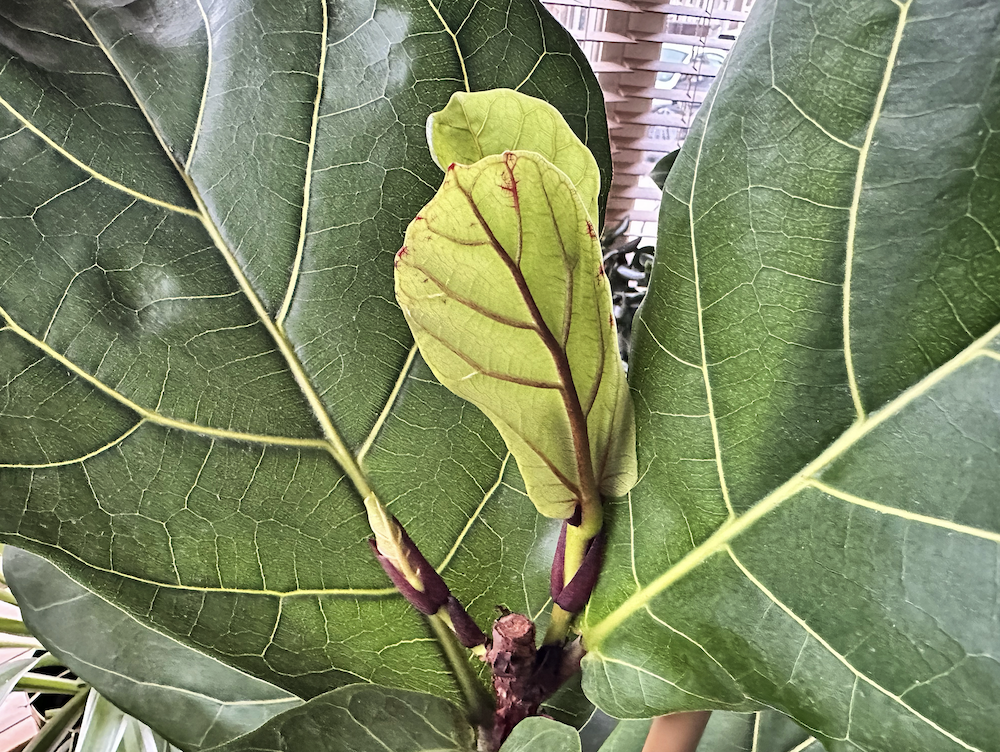
The cherry trees are in blossom (always so incredible!), and magical park hawthorns have already formed their buds, which is also very exciting. At home, my lemon trees started doubling in size again, but for now, we still have space for their new growth, so I am excited. We have celebrated a huge win: the fig tree trimmed in autumn grew two need shoots and has a new set of fresh leaves already. Coffee plants from the Christmas trip to the Kew Gardens now have at least one set of real leaves each, so I will need to move them to bigger posts soon. Our friends migrated to the Netherlands earlier this year and gifted us their garden plants – the two blueberry bushes and hydrangea are now opening (I do not know her colour, and I didn’t ask just to be surprised in summer). They left us a large jar and a few small plants, so I made a terrarium, and, yay, it is still alive.
This is still shocking at times. Last weekend, we had an early morning snowfall – they call it a “lambing storm“, and it was indeed gentle and didn’t last long. But for an hour or so, it felt like a generous Eastern European winter with large, soft flakes falling on my hand. Snow didn’t last beyond lunchtime, but it was a good reminder not to rush into gardening until the end of the month. It’s a month of celebration for many traditions, so we have plenty to do in the meantime.
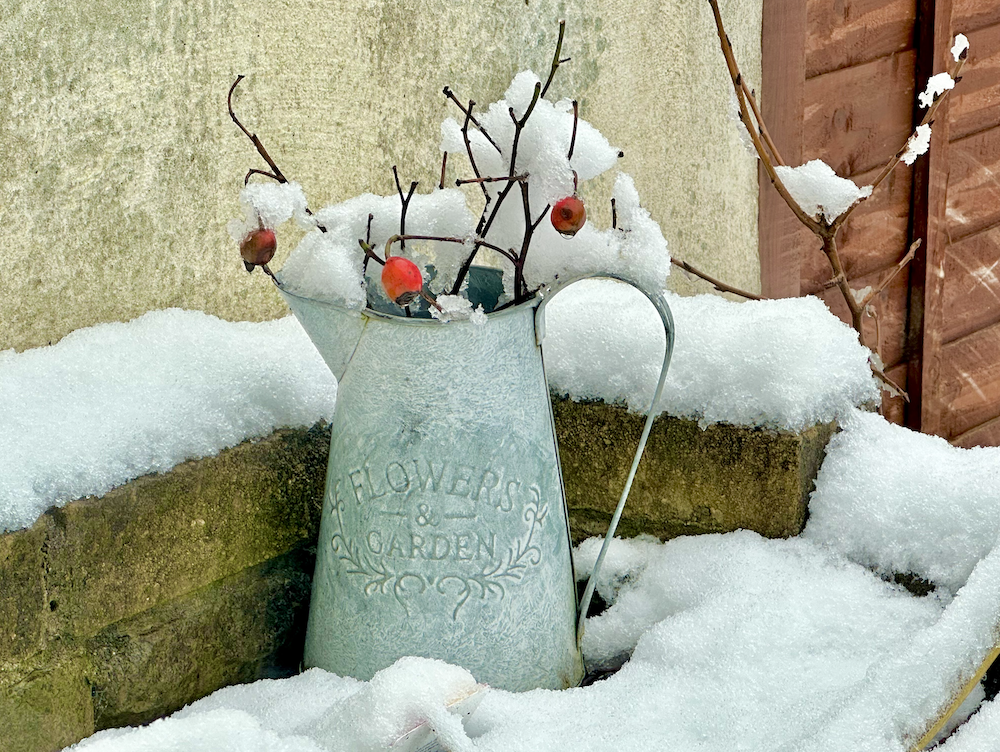
Reflection
If I feel into feminity, there is something soft and gentle in the way of being – this is something I am reconnecting with more and more this year. Slowing down my pacing. Blocking out toxicity and harm. Embracing Sisterhood and kindness of all genders, beautiful fluidity of our kind. So today, I am leaving you with two reflective practices – you can use your mobile phone to capture the results, or you can blog about your findings or journal online in any other format:
- The Nature’s Calendar suggests using March to spot the colours of spring – choose three colours before you leave home and spend some time in your day hunting for them in Nature. If you want to keep it easy, go for white, blue and yellow. If you want to challenge yourself softly, hunt for purples, reds and pinks. Notice the obvious and pay more attention to it than usual. Spot the unusual and research it. All of this opens your wider attention and perception, leading to more positive emotions. It widens our emotional bandwidth.
- The Nature Connection handbook offers an embodiment practice for returning to our senses. While observing the ponds full of frog spawn, sit down and notice the light reflecting on the water’s surface. Notice the light movement on the water and “let the play of the light enter your body and dance with it”. On this occasion, I invite you not to do more – don’t take photos, don’t Google it, and just sit with the moment. In order to disconnect from devices or sometimes too captivating apps, we need to reconnect with the stillness in ourselves, in our bodies. If we have a history of trauma or experience of a lot of anxiety at the moment, this can be hard. So, use such reflective exercises to softly re-connect with the possibility of stillness. Only for as long as it feels comfortable, and maybe for one more second just to see what’s on the other side of it. Take care.
(I will use this weekend to reconnect with the allotment. I wish you a soft weekend ahead.)

